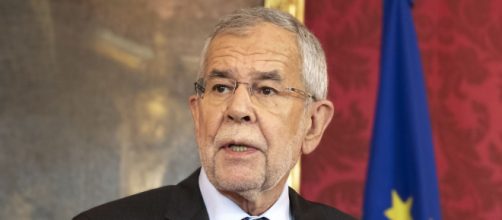Until this year the last Austrian Presidential election was held in 2016. To put it bluntly, that election turned out to be something of a hot mess. So much so that they essentially had to run a do-over.
When the dust finally settled, former National Council member Alexander Van der Bellen emerged victorious. The now-incumbent chose to run for another term as president in 2022. This time, things operated in a decidedly smoother fashion.
Win's second term easily
Alexander Van der Bellen has been re-elected as the president of Austria. He is finishing roughly 40 percentage points ahead of his nearest challenger, the Freedom Party of Austria's nominee, former National Council member Walter Rosenkranz.
The nominee for the Beer Party (seriously, the Beer Party) finished in third place, followed by a pair of Independents.
As indicated by EuroNews, Van der Bellen was also technically running as an Independent. Austria's custom is for the president to shed their previous political party affiliation. Similar traditions are held in various other countries. But the current president is still often identified with the ecologically-minded Greens. But even still, nearly every major political party in Austria threw its support behind his re-election bid. The one exception is the nationalist and populist Freedom Party.
Van der Bellen amassed well over 50 percent of the popular vote in the first and what would be the only round of voting.
The election would continue if no candidate achieved a majority of the popular vote in the first round. A second round between the top two finishing candidates in that round would compete in a four-week run-off.
A much less complicated result than in 2016
A run-off was required in 2016. The run-off happening was not unusual. Freedom Party nominee Norbert Hofer finished in first place in the first round, with Van der Bellen in second place. Neither came close to finishing with an outright absolute majority. Austria's main political parties, the Austrian People's Party and Social Democratic Party, were shut out of the second round. A development by itself that pundits viewed as being historic and seismic.
But more was yet to come. Initially, Alexander Van der Bellen appeared to score a narrow win in the second round. But rather quickly, some problems became apparent. Not least of which was mathematically impossible results in cities including Linz. Norbert Hofer was quick to tamper down accusations of fraud. An investigation found that it boiled down to simple errors. However, the Austrian Constitutional Court ruled that the second-round result should be annulled and a re-vote held.
The delay meant that a new president wouldn't be elected until after outgoing President Heinz Fischer's term expired. The National Council's three presidents, one of which was Hofer, became the country's acting presidents for several months.
When the voting was finished (again), the order remained the same, but this time by a wider margin. Hofer quickly congratulated the winner and called for unity. He later became minister of transport under Chancellor Sebastian Kurz.
Is a native of Vienna
Alexander Van der Bellen was born in what is now Vienna. At the time, the region was being controlled by the fascist Third Reich regime. After the regime's fall, he earned a doctorate at the University of Innsbruck.
Eventually, he joined the faculty of the University of Vienna before joining the National Council in 1994. He remained a member for nearly 18 years before serving in the Viennese legislature until 2015.


